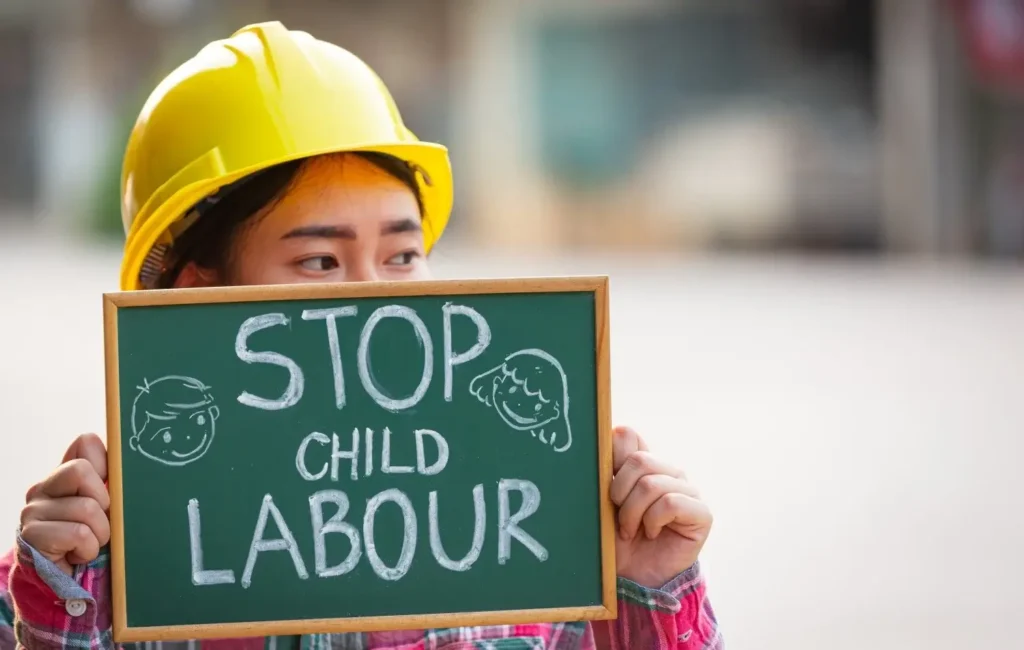Growing up can be tough. For some teens, becoming independent is more than a dream—it’s a must. Emancipation is a legal way for minors to take charge when family support fails.
Emancipation is more than a legal term. It’s a chance for young people to be on their own and make their own choices. When family support isn’t there, this process lets minors become legally adult before they’re old enough.
The path to emancipation is personal and complex. Each story is unique, filled with survival, resilience, and the wish to lead one’s own life. Not all teens need or qualify for emancipation. But for those who do, it can change their lives.
Key Takeaways
- Emancipation is a legal process granting minors adult-like independence
- Typically available for individuals 16 years and older
- Requires demonstrating financial and personal stability
- Involves a formal court process with strict evaluation criteria
- Grants legal rights to make personal, financial, and healthcare decisions
Table of Contents
What is Emancipation and Why is it Important?
Emancipation is a key legal step for young people wanting to be free from their parents. It lets minors handle their own life, money, and legal matters early on.
Understanding Emancipation Meaning
Emancipation is more than just a legal term. It shows a minor’s readiness to live on their own and make their own choices. It usually applies to those who:
- Are at least 16 years old
- Can take care of their money
- Can live independently
Historical Context of Emancipation
The history of emancipation is interesting. In the past, kids were seen as their parents’ property, with few rights. Today, emancipation laws protect young people in tough family situations. They give a way for minors to be independent.
“Emancipation is not just a legal process, but a pathway to personal freedom and self-determination.” – Legal Expert
Importance for Minors
For many young people, emancipation is a big help. It lets them:
- Decide on medical care
- Sign legal agreements
- Handle their money
- Go to school on their own
Important Note: Being emancipated doesn’t mean you have all the rights. Emancipated minors can’t vote, drink, or do other things that are age-restricted.
The Process of Emancipation in the US
Getting free from parental control can be tough for minors. It’s important to know the steps and what’s needed for this big legal step.
The steps to become legally independent vary by state. In Texas, for instance, there are clear rules for minors to follow.
Step-by-Step Emancipation Overview
- Check if you’re old enough (usually 16-17 years old)
- Show you can take care of your money
- Get all your important papers ready
- File a petition in court
- Go to a court hearing
Required Documentation
You’ll need to collect important documents to show you can live on your own. These include:
- Proof you have a steady income
- Proof you live separately
- Your school records
- Your ID
- Why you want to be emancipated
Legal Considerations
Courts look at several things when deciding on emancipation. They check if you can:
- Take care of your money
- Make smart choices for yourself
- Handle where you live
- Take care of your school and health
The path to emancipation is complex and needs careful planning. Each state has its own rules, so it’s key to learn about your state’s laws.
Who Can Seek Emancipation?
To understand emancipation, you need to know who can get legal freedom as a minor. Not every young person can get emancipation rights. There are certain criteria that decide if a minor can seek this legal status.
To get emancipation, you must meet important requirements. These show you can live on your own. While rules differ by state, some things are the same:
- Minimum age requirement of 14 years old
- Proven financial self-sufficiency
- Legal source of income
- Ability to manage personal affairs
Core Eligibility Criteria
Your emancipation petition must show you can support yourself financially and make responsible decisions. This means having:
- Steady legal income
- Safe living arrangements
- Continuation of education
- Parental consent or court approval
Key Considerations for Emancipation
Courts carefully evaluate each emancipation request. They look beyond financial aspects to ensure the minor’s overall well-being. Your petition must convincingly demonstrate that independence serves your best interests and provides a stable environment for personal growth.
Emancipation is not just about leaving home, but proving you can thrive independently.
Every state has unique nuances in emancipation laws. It’s important to research local regulations and consult legal professionals who specialize in youth rights.
Different Methods of Emancipation
Becoming legally independent as a minor has several paths. These paths help you understand how to gain freedom before you’re fully grown.

There are many ways for minors to gain independence. Each method has its own rules and legal steps.
Court Petition: Formal Legal Independence
Going to court is a formal way to gain freedom. Here’s what you need:
- Minimum age requirements vary by state (e.g., Georgia requires minors to be at least 16)
- File a petition in the juvenile court of your county of residence
- Provide detailed documents:
- Birth certificate
- Proof of residency
- Evidence of financial independence
Parental Consent: Voluntary Emancipation
Some parents choose to give up their rights. This can be:
- Partial emancipation: Allows limited decision-making while maintaining financial support
- Complete emancipation: Terminates all parental obligations through a written agreement
Military Service: Automatic Independence
Joining the military can make you automatically free. This is a special way for minors to gain freedom through service.
| Emancipation Method | Key Requirements | Legal Implications |
|---|---|---|
| Court Petition | Age 16+, Financial Stability | Full Legal Independence |
| Parental Consent | Written Agreement | Partial or Complete Rights |
| Military Service | Enlistment Qualification | Immediate Legal Status Change |
Remember, being emancipated doesn’t mean you have all adult rights. You’ll face legal limits on driving, voting, and more.
Legal Rights of Emancipated Minors
Understanding Emancipation shows a wide range of legal rights for minors. When a minor is legally freed, they get a lot of freedom in many areas of life.
Healthcare Autonomy
Emancipation gives minors the power to make health decisions on their own. You can now:
- Consent to medical treatments independently
- Schedule personal medical appointments
- Access healthcare without parental involvement
- Make critical health insurance decisions
Educational Independence
Your education path is now fully in your hands. Emancipated minors can:
- Enroll in educational institutions without parental consent
- Apply for financial aid independently
- Choose traditional, online, or alternative education paths
- Sign academic contracts and agreements
Employment Opportunities
Emancipation opens up big chances in your career. Emancipated minors can:
- Enter legally binding employment contracts
- Manage personal earnings
- Open bank accounts
- File taxes as an independent entity
These expanded rights offer a way for personal growth and self-determination during tough times.
Responsibilities of Emancipated Minors
Emancipation is more than just gaining freedom. It means taking on big adult duties. These duties need maturity, smart money management, and knowing the law.
Getting emancipated changes a teenager’s life a lot. They must handle everything on their own.
Financial Independence Challenges
Emancipated minors have big money challenges:
- Getting a steady job
- Handling their own money
- Pay for living expenses
- Plan budgets for important costs
- Keep their finances stable
Legal Liabilities
They also face big legal duties:
- Being fully responsible for legal deals
- Facing adult charges
- Pay for their own mistakes
- Participate in lawsuits
Parenting Responsibilities
Emancipated minors who have kids must:
| Responsibility | Description |
|---|---|
| Financial Support | Take full care of their child’s money needs |
| Legal Guardianship | Make all big decisions for their child’s health and education |
| Living Arrangements | Find a safe place for their child to live |
“With great independence comes great responsibility” – Modern Adaptation of a Classic Quote
Choosing emancipation is a serious step. It requires being fully self-sufficient and making wise choices in all areas of life.
Challenges Faced by Emancipated Minors
The journey to becoming an emancipated minor is filled with big challenges. It’s about understanding the tough realities of gaining legal freedom early.
Emancipated minors face many hurdles that test their strength and ability to take care of themselves. These issues affect their social, financial, and practical lives.
Social Isolation Struggles
Young people who choose to be emancipated often feel very alone. They struggle with:
- Potential loss of family support
- Keeping up with friends
- Finding people to talk to
Financial Hardships
Handling money on their own is a big challenge for them. The numbers show how tough it is:
| Financial Indicator | Percentage |
|---|---|
| Employment by Age 21 | 56% |
| High School Graduation Rate | 71% |
| Became Parents within Two Years | 22% |
Housing Complications
Finding a place to live is hard for emancipated minors. Landlords often don’t want to rent to young people. This makes it hard to set up a place of their own.
- It’s hard to get a rental agreement
- There’s limited access to transitional housing
- They often can’t afford a stable home
Overcoming these obstacles takes a lot of maturity, planning, and determination from young people who want to be emancipated.
State-by-State Emancipation Laws
Understanding emancipation laws is key for minors wanting to be independent. Laws vary a lot from state to state. This is important for those seeking legal freedom.

Emancipation laws change a lot from state to state. Each place has its own rules and guidelines. Some states make it easier to become emancipated, while others are stricter.
Overview of State Variations
Emancipation laws show a lot of difference across the US. Some main differences include:
- Minimum age requirements ranging from 14 to 18
- Financial independence criteria
- Residency and living arrangement standards
- Court petition processes
Key States with Unique Emancipation Requirements
Some states have special rules for emancipation:
- California: Allows emancipation as early as 14 with strict financial independence requirements
- Alaska: Requires six months of separate living before consideration
- Texas: Sets minimum age at 17 with detailed financial stability criteria
Resources for Research
Looking into emancipation options? Here are some helpful resources:
- State court websites
- Local legal aid organizations
- Family law attorneys specializing in youth legal status
- State government legal information portals
The emancipation process is complex. It’s important to research your state’s laws well. Talking to local legal experts can give you the best advice for your situation.
FAQs About Emancipation
Understanding emancipation can be tricky for young people and their families. This section answers common questions and clears up myths about the emancipation process.
Emancipation is more than just leaving home. It’s a legal step that gives minors rights and duties before they turn 18.
Most Frequently Asked Questions
- What exactly is emancipation?
It’s a legal way for minors (usually 16 or older) to gain independence from their parents or guardians before they’re 18.
- Who can seek emancipation?
Minors who show they can take care of themselves financially, have a stable home, and are mature enough for adult tasks.
- Does emancipation mean total freedom?
No. Emancipated minors must follow laws about drinking, smoking, and school. They can’t just ignore the law.
Common Misconceptions
- Emancipation is not a quick escape from parental rules
- It requires substantial proof of financial and personal capability
- Courts carefully evaluate each emancipation request
The emancipation process starts with a court petition. You must prove you can handle money and make adult choices. Courts always look out for the minor’s best interests in this legal journey.
Support and Resources for Emancipated Minors
Going through the emancipation process can be tough. But, there are many resources to help young people gain independence. Knowing your rights and the support available is key to your journey to self-sufficiency.
Getting help through specialized programs and organizations makes things easier. In Ohio, the Education Training Voucher Program gives up to $5,000 a year for college. The Certificate Program Funds offer up to $2,000 for certain certificates. These funds are important for building your future.
Legal and community support are essential for your freedom. Groups like Ohio Reach and Ohio Bridges offer career advice, job help, and money support. The Door also helps young people aged 12-21, including those who are emancipated.
Planning your path to independence is important. Look for help from local legal aid, counseling, and community groups focused on young adults. Remember, you’re not alone, and there are many resources to help you succeed.
FAQ
What exactly is emancipation?
Emancipation is a legal process. It lets a minor become independent from their parents or guardians early. This means they can make their own decisions about money, health, and education.
At what age can I seek emancipation?
The age to seek emancipation varies by state. Usually, it’s between 14 and 16. You must show you can support yourself and make good decisions.
Does emancipation mean I can completely stop going to school?
No, you can’t stop going to school with emancipation. Most states require you to finish your education or get a GED. You must keep up with school rules even if you’re independent.
Can my parents contest my emancipation petition?
Yes, parents can fight your emancipation. They can tell the court why they think it’s not good for you. The court will listen to both sides before deciding.
What legal rights do I gain through emancipation?
Emancipation gives you many rights. You can make contracts, make health decisions, and live on your own. But, you also have big responsibilities.
How much money do I need to prove I can support myself?
There’s no set amount, but you need to show you can cover your living costs. This includes housing, food, and transportation. Courts look for steady income and a solid financial plan.
Does military service automatically emancipate me?
Military service can help you become emancipated, but it’s not automatic. You must go through the emancipation process and meet state rules to be considered emancipated.
What happens if my emancipation petition is denied?
If your petition is denied, you can try again. You might need to improve your finances, show more maturity, or wait until you’re older.
Can I be emancipated if I’m married?
In many places, getting married can make you emancipated automatically. But, you must show you can support yourself and make your own choices.
What support resources are available for emancipated minors?
There are many resources for emancipated minors. Organizations offer legal help, support networks, and advice on housing and money. Local services can help you find these resources.










